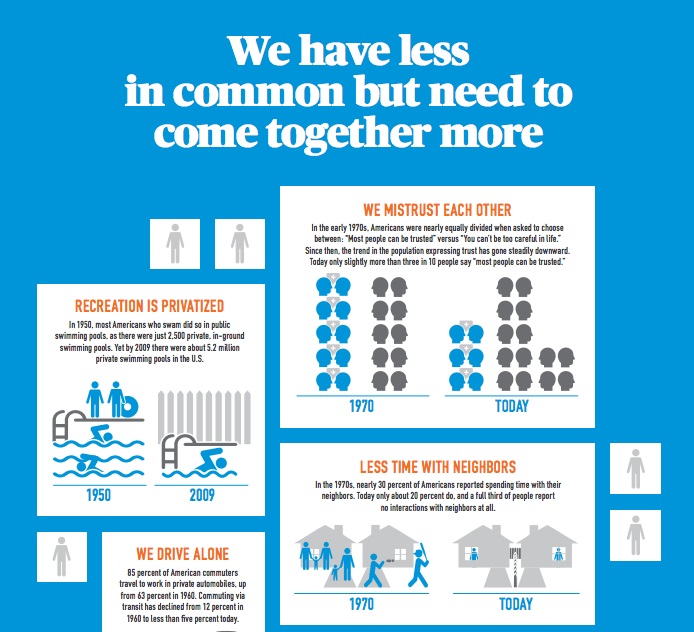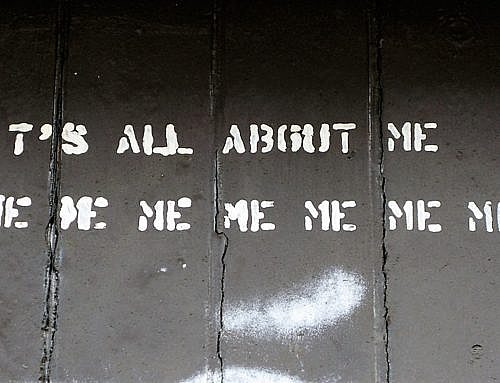While getting older has been hard on my body, surprisingly it has been elevating for my soul. One of the great ironies of life is just as your skin starts to sag you finally feel comfortable in it! It’s a bit like owning an old pair of blue jeans where each rip or stain has a treasured story behind it. My body, too, has many stories to tell. While I may have fewer years ahead of me than behind me, the one thing I know about the years ahead, they will be filled with poignancy. How do I know? With age comes a precious gift to be acquired… perspective. I once looked up at life, attempting to sort it out peering through the lives of two generations of family members in front of me. These days, I understand it far better having two generations following behind me. I have transitioned from being a ravenous consumer of life to one who now savor’s the meal and chooses to live more in the moment. I have learned to appreciate the world directly surrounding me a great deal more, and perhaps the friendships forged the most.
One of the more significant transitions I have observed is how our basic standard of living has increased so greatly in the course of a single lifetime. Technology has transformed every segment of our lives. We are living longer, with greater disposable incomes. We have access to more information than any previous generation alive. And while this may come as a shock to many, despite the perception the media gives, we are indeed living in the most peaceful time in human history. Sort of baffling, huh? It’s all about perspective. There is a virtual flood of constant communication that consumes our culture. Traveling amidst the ever-increasing, constantly evolving, information superhighway, we are more connected today, to more people on a daily and global basis than any previous generation and yet the irony of ironies is at the very same time, never before have we faced such an Epidemic of Loneliness. … So what happened? How did we get here?
SOCIAL ISOLATION
In September of 2015, economist/sociologist Joe Cortright wrote a piece in City Reports[i] where he laid out some rather astounding cultural developments based on data from the General Social Survey. (http://gss.norc.org/) The survey is conducted on even numbered years and the data analyzed is revealing as to what is trending in American society. Here are some of the most current trends:
- Distrust among Americans is increasing
- We spend significantly less time with our neighbors
- The biggest portion of our leisure time is spent watching TV
- Our recreation is increasingly privatized
- Driving alone has become the norm
- Economic segregation trends upward as middle-income neighborhoods decline
- Many more of us now live in gated communities
- Politically, America sorts itself out into like-minded geographies.
What does all the data reveal? The prevailing super-trend would indicate while we may be more connected via technology, we are becoming increasingly more isolated relationally. While many may see wealth as a means of status and security, we are using it to build for ourselves high walled castles, digging even deeper and wider moats surrounding them, some even being stocked with hungry alligators for added protection. When, or if, we lower the draw bridge it is to only let a select few family members and friends inside. Overall, we have become an increasingly suspicious people, distrusting of each other more and more. The age of innocence is over. Sadly, for many fear and paranoia are the new normal.
LET’S GIVE THIS SOME CONTEXT
Yet, as illuminating and/or disturbing as these statistics may be, without context they are meaningless. It’s all about “perspective.” For the benefit of younger generations reading this, indulge me a moment as I reflect on life in the 1950’s and 60’s as I try to provide some context for just how great the current upheaval really is and the societal transformation we are presently going through.
My generation grew up in the post WWII years. Why does that matter? A lot, and yet it will mean nothing unless you understand that our parents had been born or raised during the Great Depression. They knew all too well what it was like to grow up with nothing. Many survived their childhood on potato soup for nights on end. As that generation reached adulthood they were thrust into an unwanted global armed conflict pitting Freedom against Tyranny. They chose freedom and at any cost, Twelve percent (12%) of the American population was enlisted in the military. Tragically, over 400,000 of their friends and family members never made it back home alive from overseas. Those who did, had experienced the horrific destruction, the untold suffering and horrendous violence of war. It left them profoundly scarred for life, both physically and mentally. And they were silent about it; they grew up at a time where such things were simply not shared. They returned home determined to build a better country and did so with military precision and diligence. They dreamt of building an idyllic peaceful society, largely in reaction to having witnessed humanity at its worst. Yet many of our parents died rather conflicted, wondering if they had succeeded or failed in that regard.
 The nuclear family was the centerpiece of this new society they were intent on building. The average age of men and woman marrying dropped to 24 and 21 respectively. Birth rates skyrocketed; hence my generation was labeled the “Boomers”. The housing market boomed, suburbia became a phenomena as young families relocated to “The Burbs” in order to pursue the American Dream. The coming of age movie favorite for this period was George Lucas’s American Graffiti. Elvis was “The King.” The Hardy Boys and Doctor Seuss were the books we read. Leave It to Beaver, My Three Sons, Gilligan’s Island and The Wonderful World of Disney were the TV shows we watched. It was a time of innocence, at least on the surface anyway.
The nuclear family was the centerpiece of this new society they were intent on building. The average age of men and woman marrying dropped to 24 and 21 respectively. Birth rates skyrocketed; hence my generation was labeled the “Boomers”. The housing market boomed, suburbia became a phenomena as young families relocated to “The Burbs” in order to pursue the American Dream. The coming of age movie favorite for this period was George Lucas’s American Graffiti. Elvis was “The King.” The Hardy Boys and Doctor Seuss were the books we read. Leave It to Beaver, My Three Sons, Gilligan’s Island and The Wonderful World of Disney were the TV shows we watched. It was a time of innocence, at least on the surface anyway.
More importantly though, what made that time unique and different from today was the way we interacted. The neighborhood was our domain and we were its rulers… at least we thought we were. No one locked their doors. Every mom was everyone’s mom as we ran from house to house continually rummaging for food. At least once a month there was a block party at somebody’s house. Crazy as it sounds, still to this day I can picture our street and name each and every one of the neighbors on both sides of the street. Everyone showed up at these events; dads with meat and beer, moms with salads, casseroles and desserts. My parents even strung Christmas lights in the backyard in anticipation of our big “Christmas in July” event. The next morning blocks of ice were still floating in the kiddie pool which had become the makeshift cooler for the beer and other assorted alcoholic beverages. No one drove home, they walked! As kids most of our life was lived outside either in the woods or playing sports with each other. There were few if any organized leagues other than maybe baseball. The sports we played were neighborhood pick-up games, the age span from 5-15. Eating out was a rarity and a special treat at that. TV was something you might watch on the weekend during the winter months. Whatever we did, we did as a group and it was a given that you did it with neighbors. The neighborhood was everything!
Our society has changed rather dramatically over the last 60 years. Today, you’re lucky if you even know your neighbor’s name. While Facebook may offer us a pseudo sense of community and allow us to stay informed, the truth is we are spending less and less time actually WITH each other! As UCLA neuroscientist Mathew Lieberman’s research would indicate, we are wired as humans to connect. It is as fundamental as our need for food and water and yet we are more isolated than ever.[ii] Our capacity for and the technological means of communication at our fingertips has never been greater, and yet quality time with meaningful relationships is at an all-time low. We are starving relationally, and we are starving spiritually.
Christianity in its infancy was a relationally driven way of life. When asked for an executive summary statement by religious leaders in Luke 10, Jesus summed it up this way; Love God, and Love your Neighbor. That’s it! That is the essence of Christianity. Seems to me in this “Crisis of Loneliness” the Christian community has a huge opportunity if only it could see past its own isolation, and seek to refocus itself on serving those outside of its own four walls. Sadly, in far too many communities, the church has become its own walled off community, seeking to serve itself and the needs of its own insular community We might just want to revisit the question, “And who is my neighbor?”
MALE ISOLATION
In my practice as both a counselor and a consultant, I discovered a sad reality a number of years ago which rarely if ever gets talked about: male isolation — how much lonelier and isolated men in particular are feeling and becoming in our culture. In all my years, I have yet for one of my male clients to bring up this issue voluntarily. Why the silence? Why does no one talk about it? Perhaps it is simply too personal and painful to admit. Perhaps it’s pride or the fear of rejection. Often, it invokes that feeling you might have had as a kid being the last person standing there after teams had been picked for the neighborhood baseball game. Regardless of the reason, the alarming reality is it’s the new silent killer! The cruel essence of loneliness not only has a devastating effect on our souls, but our bodies as well. The surgeon general of the United States, Dr. Vivek Murthy, has repeatedly warned in recent years that the most prevalent health issue in the country is not cancer or heart disease or obesity, it is isolation. Study after study keeps shedding light on how significant and widespread this problem has become. One recent study found that merely living alone can increase the risk of premature death by a whopping 6%.[iii]
Not only do men feel isolated and alone, they feel torn and fragmented by the three primary areas of their life: family, career and spirituality—each competing for our limited time, attention and resources. The stakes could not be higher in each of these arenas and the potential fall from such precipitous heights could not be more intimidating. Much of the fear of failure is driven by those in leadership in each of these three sectors who demand so much of them. Add in most men’s personal drive and determination and it can quickly become a deadly cocktail for destructive behaviour. The pressure to be the perfect husband and father is particularly intense within most religious circles. Family failure leads to humiliation; the tragedy of divorce leads to further isolation leaving you as a social outcast, if not a spiritual one. At work, the pressure to perform and deliver has its own dynamics. Failure here can lead to unemployment, which takes on whole different dimension of pain and humiliation. Interestingly enough, in an effort to curb the intrusiveness of employers on people’s personal lives, the French have outlawed work emails in the evenings and on the weekend. Not so in America! Many American companies expect you to do whatever it takes to win and if that intrudes into your family time, so be it. Compound that with the all-consuming intensity of the third arena, the spiritual one, where the stakes are even higher, because failure in this realm has “Eternal” consequences, and what you have is a recipe for disaster. If divorce and unemployment weren’t bad enough, screw up here and now we have the threat of Hell.
When the stakes are high and the pressure intense, most men are conditioned to “suck it up” and just “deal with it.” But it’s how we deal with it that makes matters worse… we both internalize AND isolate. In our isolation, we are prone to a terrible miscalculation: we assume we are the only ones feeling this way. Feeling confused and overwhelmed, our inbred sense of shame further reinforces our silence. So, most men, because of our basic conditioning and a lack of healthy models suggesting an alternative, choose to stay quiet and suffer in a solitary silence.
In today’s culture, young fathers perhaps struggle the most. They often find themselves overscheduled, constantly dealing with the fear of short-changing their children or spouse. The most immediate casualty in this squeeze tends to be their male friendships whether that be peers or mentors. The general busyness of life crowds out any capacity for such perceived “non-essentials.” It’s pretty easy, and sadly all too common, for six months or a year to quickly pass by, before realizing most of their meaningful friendships have long since gone dormant, because of simple neglect and not prioritizing them as being of any necessity or importance. It is only in taking a timeout, dusting off the cobwebs and helping them get their bearings, do they realize: “Oh Wow, has it been that long?” since they last had meaningful time with an old friend.
ADDRESSING SOME MISCONCEPTIONS
One misconception many wives tend to have is that “couples get togethers” are a substitute for meaningful man time. I’m sorry ladies but nothing could be further from the truth! Typically, these social situations are driven by the wives and while the men may enjoy each other’s company, what gets discussed and the way it gets discussed is tempered out of respect for the wives. Even the subject matter is most times determined by the women. Men have done it to themselves, by deferring the calendar to their social secretary, whether it’s due to feeling somewhat socially awkward or perhaps done out of respect or deference to their wife, but nevertheless, it is a realm we have abdicated to our own hurt. While the wives may be getting their personal need met for speaking a 100,000 words per day with their friends, it does very little if anything to meet the needs of men.
Before anyone gets offended, let me explain. Oxford Psychologist Robin Dunbar has done extensive research into human dynamics and the difference between the sexes. According to Professor Dunbar’s findings “What determined whether [friendships] survived with girls was whether they made effort to talk more to each other on the phone.” Which makes total sense, and something most everyone has come to assume and accept as a given. What may come as a total surprise to most women though is this: Dunbar’s research found that talking had absolutely no effect on boys’ relationships. “What held up their friendships was doing stuff together,” said Dunbar. “Going to a football match, going to the pub for a drink, playing five-a-side. They had to make the effort. It was a very striking sex difference.” [iv] Something else you might find fascinating is that when women communicate they face each other; when men talk, they stand side by side looking out at the world together. That’s something worth giving a little time to ponder as to the implications.
HERE’S THE RUB
By now, I imagine you can see the destructive, self-reinforcing cycle of isolation. Not only is our basic conditioning a bit messed up, our coping mechanisms with the pressure we face lead us to the same dysfunction, and unless our significant female relationships recognize the need to encourage and support some healthy changes, the natural progression of things over time leads us to our central dilemma: men tend to do less and less with each other of the very things they need to do the most, and need to do it more! The demands of life overwhelm them and what gets jettisoned seems at first glance to be insignificant but the research is telling us exactly the opposite, it’s not! Meaningful male relationships are essential to your health.
 Like most everything else in life, knowing what you are supposed to do and doing it are difficult to bridge. It’s a bit like losing weight and exercise, one has to plan for it or it never materializes. The same is true with your friendships, you have to schedule them in advance and on a regular basis or they won’t happen. Something else I might suggest, while hunting, fishing and playing golf are all great activities to do together, you might want to consider a project. John Eldredge, the author of Wild at Heart, said “All men need a battle to fight”. I can attest that’s true having discovered it first hand while taking teams of men to Guatemala to build homes for widows and children. Raiding militants in the area had killed many of the local husbands and fathers, leaving the women and children poor and destitute. I watched the men who volunteered to go and help, and took note of the change in disposition between the plane ride down and their return flight home. This was more than just some weekend charity effort; it had become a rescue mission. They had done something together that mattered! As an added benefit and natural byproduct, they came back with a renewed sense of their manliness and the joy of comradery –something that all men need. Guys: go find some battles to fight with your buddies.
Like most everything else in life, knowing what you are supposed to do and doing it are difficult to bridge. It’s a bit like losing weight and exercise, one has to plan for it or it never materializes. The same is true with your friendships, you have to schedule them in advance and on a regular basis or they won’t happen. Something else I might suggest, while hunting, fishing and playing golf are all great activities to do together, you might want to consider a project. John Eldredge, the author of Wild at Heart, said “All men need a battle to fight”. I can attest that’s true having discovered it first hand while taking teams of men to Guatemala to build homes for widows and children. Raiding militants in the area had killed many of the local husbands and fathers, leaving the women and children poor and destitute. I watched the men who volunteered to go and help, and took note of the change in disposition between the plane ride down and their return flight home. This was more than just some weekend charity effort; it had become a rescue mission. They had done something together that mattered! As an added benefit and natural byproduct, they came back with a renewed sense of their manliness and the joy of comradery –something that all men need. Guys: go find some battles to fight with your buddies.
As we continue to expand what we do here at Joseph Company Global, one of the areas of need we have felt impressed to address is helping men connect! One simple way to begin is exploring the possibility of scheduling some men’s weekend retreats/adventures. If this is of interest to you, give us a shout. Let us know so we can explore this further together.
[i] http://cityobservatory.org/less-in-common/
[ii] https://www.scientificamerican.com/article/why-we-are-wired-to-connect/
[iii] http://journals.sagepub.com/doi/abs/10.1177/1745691614568352
[iv] https://www.theguardian.com/science/2017/feb/20/key-to-keeping-friendships-alive-different-for-men-and-women-scientists-say







Maybe single Promise Keepers could form a dating site us single, Christian ladies who feel the aame.
Interesting suggestion. I have received a number of replies on the blog from woman struggling with loneliness who feel as you do. I didn’t want to be remiss in leaving them out of the discussion but was concerned the blog would be too long! Women are so much better as relationships and tend to find comfort amoungst their female friends. Men simply isolate and don’t talk about it.